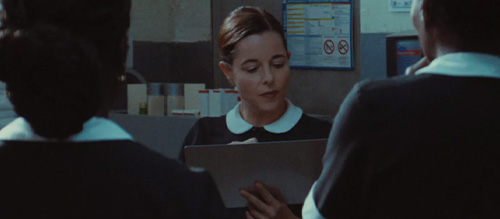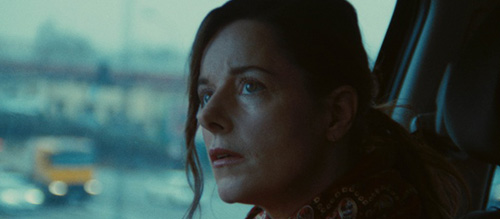Full Time (2021) EIFF Review
Full Time (2021)
Director: Eric Gravel
Screenwriter: Eric Gravel
Starring: Laure Calamy, Anne Suarez, Geneviève Mnich, Cyril Gueï
Premiering at Venice Film Festival back in September of 2021, Eric Gravel’s critically acclaimed Full Time is at the end of its festival run, with one of its final stops coming at the 2022 edition of the Edinburgh International Film Festival.
Full Time follows Julie (Laure Calamy, fresh off the heels of her role in ‘Call My Agent!’), a single mother of two working as a housemaid at a five star hotel whilst preparing for a job interview that can give her and her children a better life. However, during the week of her interview there is a national transit strike.
In many ways it seems like the type of dry, realist drama you’d come to expect from Ken Loach, and on paper it is. On top of the film’s key plot points, Gravel sets up further situations to show the pressures facing Julie; trying not to lose her current job, getting her husband to pay alimony, trying to find a new babysitter for her kids – it shows just how thin Julie is stretching herself. Yet, although we can see the lengths Julie is going to, a recurring pattern in the film is others telling her that she needs to be a better mother. It is this sad reality that single mothers face which allows Gravel to create such a relatable character, relying on each of our defence mechanisms towards our own parents to allow us to feel the same way toward Julie.
Something that does feel off about the screenplay, however, is the complete lack of stance on the transit strikes themselves. Although a major plot point, it is only ever mentioned as a means of explanation rather than as a focus of debate. Julie explains that she is late due to the strikes but no character ever mentions their thoughts on the strikes themselves; if they agree with the transit workers striking or not. It is an interesting hole in the script and frankly a shame considering that the screenplay does not mind tackling other political issues.
Julie is incredibly well written. Not only do the situations she faces show her as a strong character, but her reaction to the situations do so tenfold. Come the halfway mark of the movie, it would be understandable for Julie to shed a tear but she never does. It is a perfect encapsulation as to just how strong and determined she is, not letting anything break her down and continuing in her mission until the job is done.
A nice touch is that she is not portrayed as a total saint. Julie has flaws and the movie makes them very clear. There are numerous times in which she is dishonest, even blatantly lying. She isn’t perfect, but it also illustrates how she will do whatever it takes to give her children a better life. It is refreshingly honest, and whilst we don’t agree with it, it helps us to better understand the desperation of her predicament.

It is within her determination to give her children a better life that the message of the film really appears. Although we are desperate for Julie to get the new job, Gravel himself describes our feelings as “bittersweet”. If she doesn’t get the job then she cannot afford the life she wishes for her children, if she does get the job she will see them even less than she already does. It is a heavy message to take, one that reminds us that we are dependent on the same often unfair system.
Whilst the screenplay itself is tense, it is the camera work that truly brings the drama of Julie’s situation to new heights, the documentary-realist style turning the film into something more akin to a stylistic thriller. Picture the Safdie Brothers directing a film about a single mother – this is that film.
Almost always handheld and moving, the visuals captured by director of photography Victor Seguin take us directly into the belly of the beast: Paris rush hour. This handheld camera work gets in amongst the crowds of France, placing us into the busy railway stations, effectively casting us as extras in the film itself. This all-access shooting style to the daily morning routine of many Parisians allows us to feel as though we are actually there, using the mass of bodies surrounding the lens to create a feeling of claustrophobia; it is up close, personal and raw. This use of visuals, combined with some excellent editing, is masterful by Gravel and his team, placing us right in the shoes of Julie, allowing us to feel the very tension and pressure that she faces.
Although it is a relatively simple story in scope, Full Time accurately portrays the insane amount of pressure that single mothers must handle, all the while managing to make us feel some of the weight that this single mother does. With Full Time Eric Gravel takes an ordinary story and tackles it in an extraordinary way, delivering a fantastic portrayal of parenthood that will bring you a new found appreciation for your own mother.
Score: 19/24


